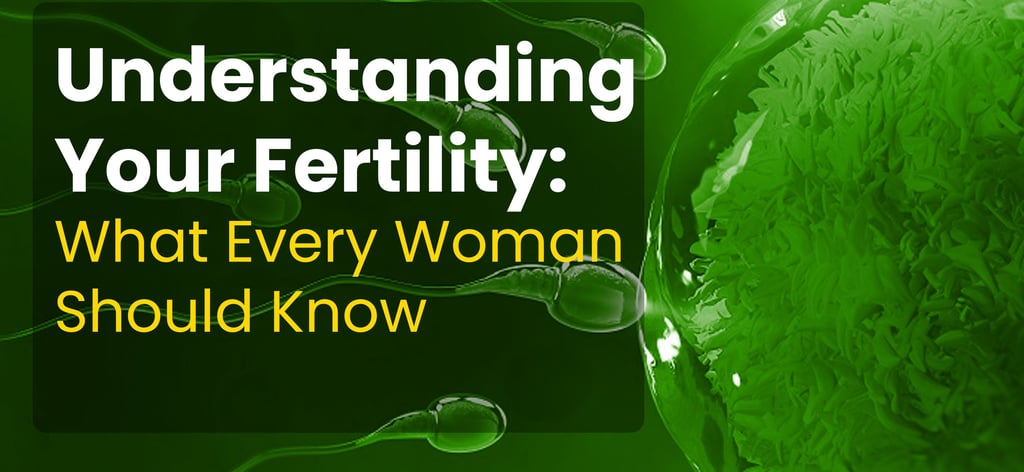Understanding Your Fertility: What Every Woman Should Know
Fertility refers to a person’s ability to conceive a child. For women, it is closely linked to the health of the reproductive system, hormonal balance, and menstrual cycle. It’s important to know that fertility can change over time and can be influenced by various physical, environmental, and lifestyle factors.
FERTILITY
well life foundation
1/7/20262 min read


Understanding Your Fertility: What Every Woman Should Know
Fertility is often misunderstood, yet it is one of the most important aspects of a woman’s health journey. Whether you’re actively trying to conceive, thinking about the future, or simply want to understand your body better, fertility awareness is vital. At Well-Life Foundation Abuja, we believe that informed women are empowered women — and that begins with understanding the basics.
🌀 What Is Fertility?
Fertility refers to a person’s ability to conceive a child. For women, it is closely linked to the health of the reproductive system, hormonal balance, and menstrual cycle. It’s important to know that fertility can change over time and can be influenced by various physical, environmental, and lifestyle factors.
📆 Understanding Your Menstrual Cycle
Your menstrual cycle is more than just your monthly period — it is a powerful indicator of reproductive health. A typical cycle lasts 21–35 days and is divided into phases:
Menstrual Phase (Day 1–5): Shedding of the uterine lining (your period).
Follicular Phase (Day 1–13): Hormones stimulate the ovaries to develop follicles, one of which will release an egg.
Ovulation (Around Day 14): The mature egg is released into the fallopian tube, ready for fertilization.
Luteal Phase (Day 15–28): The body prepares for pregnancy. If the egg isn’t fertilized, hormone levels drop and the cycle starts again.
🥚 Ovulation: The Fertile Window
Ovulation is key to conception. This usually happens mid-cycle — about 14 days before your next period. The egg survives for 12–24 hours, but sperm can live up to 5 days in the female body. This means your “fertile window” is about 5–6 days leading up to and including ovulation.
Tracking ovulation can be done by:
Monitoring cervical mucus changes
Tracking basal body temperature
Using ovulation prediction kits
🚨 When Should You Be Concerned?
Fertility varies from person to person, but consider speaking to a doctor if you:
Have irregular or absent periods
Are under 35 and have been trying to conceive for over a year
Are over 35 and have been trying for over 6 months
Experience painful periods or pelvic pain
Have a history of STIs, PCOS, or endometriosis
💬 Final Thoughts
Fertility is not just about getting pregnant — it’s a crucial aspect of your overall well-being. The more we understand our bodies, the better we can advocate for ourselves. Stay tuned for next week’s article, where we break down the Top 10 Fertility Myths that many women still believe.
Contact
Reach out for compassionate healthcare support.
Phone
info@welllifefoundationng.com, welllifefoundationng@gmail.com
0808-561-7704
© 2025. All rights reserved.
